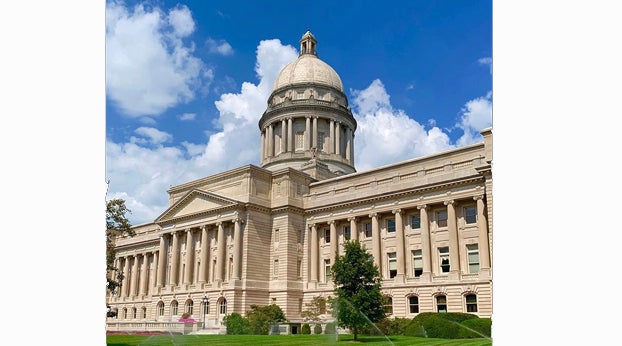New Kentucky laws take effect Thursday
Published 12:23 pm Tuesday, July 12, 2022
|
Getting your Trinity Audio player ready...
|
By Tom Latek
The 2022 Kentucky General Assembly approved 234 bills before they adjourned in April, most of which will take effect Thursday, as provided for in the Kentucky Constitution.
Under Section 55 of the constitution, new laws take effect 90 days after the adjournment of the legislature unless they have special effective dates, are general appropriation measures, or include emergency clauses that make them effective immediately upon becoming law.
The 2022 session adjourned April 14, making July 14 the effective date for most bills. They include:
–House Bill 43 prevents a governmental entity from banning religious services during an emergency to a greater extent than imposed on other organizations or businesses that provide essential services. Its sponsor called it a measure to protect religious liberty, and bans the restrictions imposed during the COVID-19 emergency.
–Senate Bill 23 cracks down on people who steal packages off front porches, often referred to as porch pirates. The bill makes it a Class D felony to steal or destroy packages from common carriers and delivery services such as Amazon or FedEx, adding protection already given to the U.S. Mail.
–HB 9 establishes a funding model for charter schools, building on legislation from 2017 that first allowed charters in Kentucky. It also authorizes two pilot charter school projects in Louisville and Northern Kentucky and changes the appeals process if education officials deny an application for a new charter school.
–HB 263 makes criminal abuse against a victim under 12 years of age a Class B felony, punishable by up to 20 years in prison.
–SB 97 says law enforcement must request a blood, breath or urine test from parents and caregivers suspected of being under the influence at the time of a suspicious child death. If consent is not given, this bill gives law enforcement the power to request a search warrant.
–SB 179 enhances penalties for crimes committed during a natural or man-made disaster declaration. Crimes include assault, burglary, criminal trespass, criminal mischief, theft, receiving stolen property and robbery.
–SB 1 designates local superintendents for selecting appropriate educational curriculum and materials for local schools. It also includes language from the Teaching American Principles Act, which will require instruction in social studies to align with a list of core concepts and documents that supporters say are central to American civics, and bans teaching critical race theory.
–HB 215 requires those convicted of trafficking fentanyl, carfentanil, or fentanyl derivatives to serve at least 85% of their criminal sentences, up from the current 50%. It also makes importing those drugs from another state or country a Class C felony and deems offenders ineligible for a pretrial diversion.
–HB 7 revamps public assistance benefits and seeks to combat fraud with new rules around benefit eligibility. It also seeks to increase accountability from the state Cabinet for Health and Family Services and encourage healthy choices for those receiving nutritional assistance.
–HB 121 requires a public comment period of at least 15 minutes at local school board meetings, unless no one is signed up to speak. It also requires that any board rules and policies regarding conduct apply during the comment period.
–SB 83 prevents male-to-female transgender students from participating in girls’ sports, starting in the sixth grade and continuing through college.






